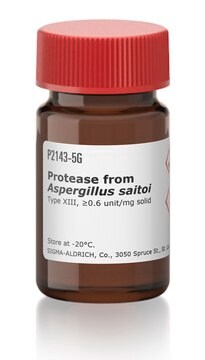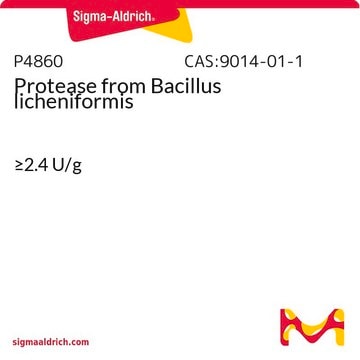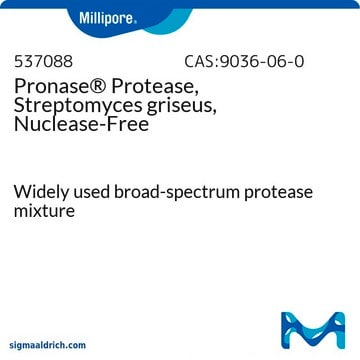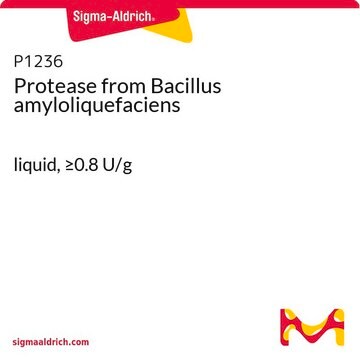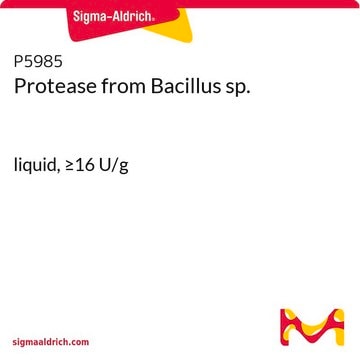P0652
Protease from Streptomyces sp.
Type XXI, ≥15 units/mg solid
Sinónimos:
actinase E, pronase E, Actinase E, Pronase E
About This Item
Productos recomendados
type
Type XXI
Quality Level
form
powder
specific activity
≥15 units/mg solid
mol wt
~50 kDa
storage temp.
−20°C
Categorías relacionadas
Application
Biochem/physiol Actions
Physical properties
Inhibitors : Diisopropyl fluorophosphate, EDTA
Optimum pH : >=12
Optimum temperature : 60oC
pH Stability : pH 5.0 - 11.5 (25oC,24hr)
Thermal stability : below 50oC (pH 8.3, 15min)
Unit Definition
Physical form
Preparation Note
signalword
Danger
hcodes
Hazard Classifications
Eye Irrit. 2 - Resp. Sens. 1 - Skin Irrit. 2 - STOT SE 3
target_organs
Respiratory system
Storage Class
11 - Combustible Solids
wgk_germany
WGK 2
flash_point_f
Not applicable
flash_point_c
Not applicable
ppe
Eyeshields, Gloves, type N95 (US)
Certificados de análisis (COA)
Busque Certificados de análisis (COA) introduciendo el número de lote del producto. Los números de lote se encuentran en la etiqueta del producto después de las palabras «Lot» o «Batch»
¿Ya tiene este producto?
Encuentre la documentación para los productos que ha comprado recientemente en la Biblioteca de documentos.
Los clientes también vieron
Protocolos
This procedure is for informational purposes including assay Procedure, definition, and calculations for Protease
Nuestro equipo de científicos tiene experiencia en todas las áreas de investigación: Ciencias de la vida, Ciencia de los materiales, Síntesis química, Cromatografía, Analítica y muchas otras.
Póngase en contacto con el Servicio técnico


